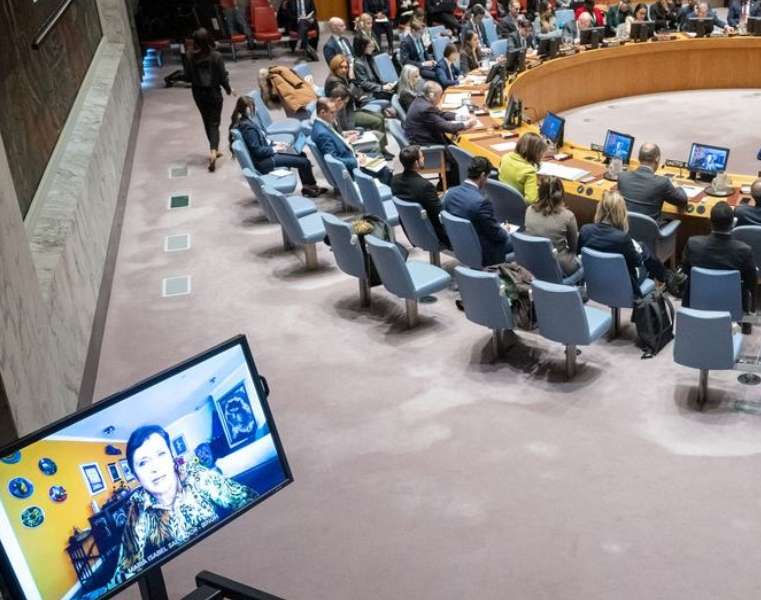Continued International Aid Crucial for Haiti’s Gang Violence Mitigation, UN Report Warns.
The Escalating Crisis in Haiti: A Nation Teetering on the Brink
Haiti is grappling with a multifaceted crisis characterized by rampant gang violence, political instability, and a dire humanitarian situation, pushing the nation to the precipice of collapse. The escalating violence, fueled by the proliferation of illegal arms and a flourishing drug trade, has claimed over 5,600 lives in 2024 alone, with a recent massacre in Pont-Sondé serving as a grim testament to the deteriorating security landscape. The pervasive insecurity has displaced over a million Haitians, leaving them vulnerable to further violence and exacerbating the already precarious humanitarian situation affecting nearly half the population. Lynchings, summary executions, and other atrocities have become commonplace, painting a bleak picture of a nation struggling to maintain order and protect its citizens.
The absence of a functioning government further complicates the crisis. Haiti currently lacks both a president and a parliament, hindering efforts to address the root causes of the violence and implement effective solutions. While a transitional government is in place, its fragility and limited capacity further undermine its ability to restore stability and provide essential services to the beleaguered population. This political vacuum creates an enabling environment for criminal gangs to expand their influence and control, threatening to overwhelm the capital, Port-au-Prince, and further destabilize the nation. International efforts to bolster the transitional government and support its efforts to restore order have been hampered by the complex political dynamics within Haiti and the limited resources available for intervention.
The international community has responded to the crisis with the deployment of a Kenya-led Multinational Security Support (MSS) mission, backed by the United Nations. However, this mission faces significant challenges, including a severe shortage of funding, personnel, and equipment. Despite the authorized strength of 2,500 officers, only 800 have been deployed, drastically limiting the mission’s capacity to effectively support the Haitian National Police in combating gang violence and restoring security. This understaffing and under-resourcing has hampered the MSS’s effectiveness and underscores the need for increased international support to bolster its capabilities and achieve its mandate.
Efforts to transform the MSS into a full-fledged UN peacekeeping force have encountered resistance from China and Russia, further complicating the international response. This resistance reflects the geopolitical complexities surrounding the Haitian crisis and the divergent perspectives on the appropriate role of the international community in addressing internal conflicts. The lack of consensus on a robust peacekeeping operation has hindered the deployment of necessary resources and expertise to effectively counter the gang-led violence and restore stability. The ongoing debate over the nature of international intervention underscores the need for a unified approach to address the multifaceted challenges facing Haiti and prevent further deterioration of the security situation.
The criminal landscape in Haiti is further complicated by the flow of illegal arms, drug trafficking, and other illicit activities, all facilitated by widespread corruption and money laundering. Despite an arms embargo, weapons and ammunition continue to flow into the country, ending up in the hands of criminal gangs, fueling the violence and undermining efforts to restore order. The drug trade, a significant source of revenue for these gangs, perpetuates the cycle of violence and instability. Furthermore, the emergence of other illicit markets, such as wildlife crime, particularly the trafficking of eels, highlights the diversification of criminal activities and their potential to further destabilize the country. Reports linking influential political and economic figures to the eel trade and its use for money laundering underscore the deep-rooted nature of corruption and its role in perpetuating the crisis.
The Dominican Republic, sharing a border with Haiti, has expressed growing concern over the escalating crisis and its potential spillover effects. Dominican Foreign Minister Roberto Alvarez has criticized the current international efforts, including the Kenya-led MSS, as inadequate to address the gravity of the situation. He has highlighted the worsening violence and the need for a more robust and effective response to curb the flow of illegal weapons and funds to criminal gangs. Alvarez has also strongly opposed the inclusion of criminal groups in Haiti’s transitional government, emphasizing the inherent danger of legitimizing such actors and their potential to further destabilize both Haiti and the region. The Dominican Republic’s concerns underscore the regional implications of the Haitian crisis and the need for a coordinated international approach to address its root causes and prevent further destabilization.
Share this content:












Post Comment